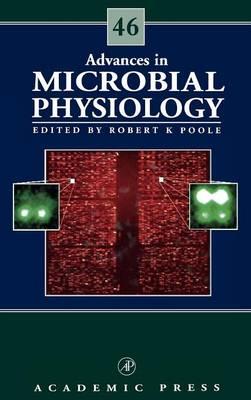Overview
First published in 1967, Advances in Microbial Physiology is one of Academic Press's most renowned and acclaimed series. The Editors have always striven to provide a diverse range of top-quality papers on all aspects of microbial physiology. Coverage of 'holistic' topics or whole cell studies such as ion fluxes, stress responses and motility have gone hand-in-hand with detailed biochemical analyses of individual transport systems, electron transport pathways and many aspects of metabolism. Now edited by Professor Robert Poole, University of Sheffield, Advances in Microbial Physiology continues to publish topical and important reviews, interpreting physiology in its broadest context, to include all material that contributes to our understanding of how microorganisms and their component parts work. In 1999, the Institute for Scientific Information released figures showing that the series has an Impact Factor of 5.35, with a half life of 8 years, placing it 5th in the highly competitive category of Microbiology; testimony to the high regard in which it is held.
Full Product Details
Author: Robert K. Poole (West Riding Professor of Microbiology, Department of Molecular Biology and Biotechnology, University of Sheffield, UK) ,
Robert K. Poole (University of Sheffield, UK) ,
Robert K. Poole (University of Sheffield, UK) ,
Robert K. Poole (University of Sheffield, UK)
Publisher: Elsevier Science Publishing Co Inc
Imprint: Academic Press Inc
Volume: v. 46
Dimensions:
Width: 15.20cm
, Height: 2.20cm
, Length: 22.90cm
Weight: 0.770kg
ISBN: 9780120277469
ISBN 10: 0120277468
Pages: 389
Publication Date: 22 May 2002
Audience:
Professional and scholarly
,
Professional & Vocational
Format: Hardback
Publisher's Status: Out of Print
Availability: In Print

Limited stock is available. It will be ordered for you and shipped pending supplier's limited stock.
Reviews
PRAISE FOR THE SERIES This series has consistently presented a well balanced account of progress in microbial physiology...invaluable for teaching purposes. -AMERICAN SCIENTIST
PRAISE FOR THE SERIES This series has consistently presented a well balanced account of progress in microbial physiology...invaluable for teaching purposes. -AMERICAN SCIENTIST
"PRAISE FOR THE SERIES ""This series has consistently presented a well balanced account of progress in microbial physiology...invaluable for teaching purposes."" --AMERICAN SCIENTIST"
PRAISE FOR THE SERIES This series has consistently presented a well balanced account of progress in microbial physiology...invaluable for teaching purposes. -AMERICAN SCIENTIST
PRAISE FOR THE SERIES ""This series has consistently presented a well balanced account of progress in microbial physiology...invaluable for teaching purposes."" --AMERICAN SCIENTIST
Author Information
Professor Robert K Poole is Emeritus Professor of Microbiology at the University of Sheffield, UK. He was previously West Riding Professor of Microbiology at Sheffield and until 1996 held a Personal Chair in Microbiology at King’s College London. During his long career, he has been awarded several research Fellowships, and taken sabbatical leave at the Australian National University, Kyoto University and Cornell University. His career-long interests have been in the areas of bacterial respiratory metabolism, metal-microbe interactions and bioactive small gas molecules. In particular, he has made notable contributions to bacterial terminal oxidases and resistance to nitric oxide with implications for bacterial pathogenesis. He co-discovered the flavohaemoglobin Hmp, now recognised as the preeminent mechanism of nitric oxide resistance in bacteria. He has served as Chairman of numerous research council grant committees, held research grants for over 40 years and published extensively (h-index, 2024 = 70). He served on several Institute review panels in the UK and overseas. He is a Fellow of the Royal Society of Chemistry and the Royal Society of Biology.




